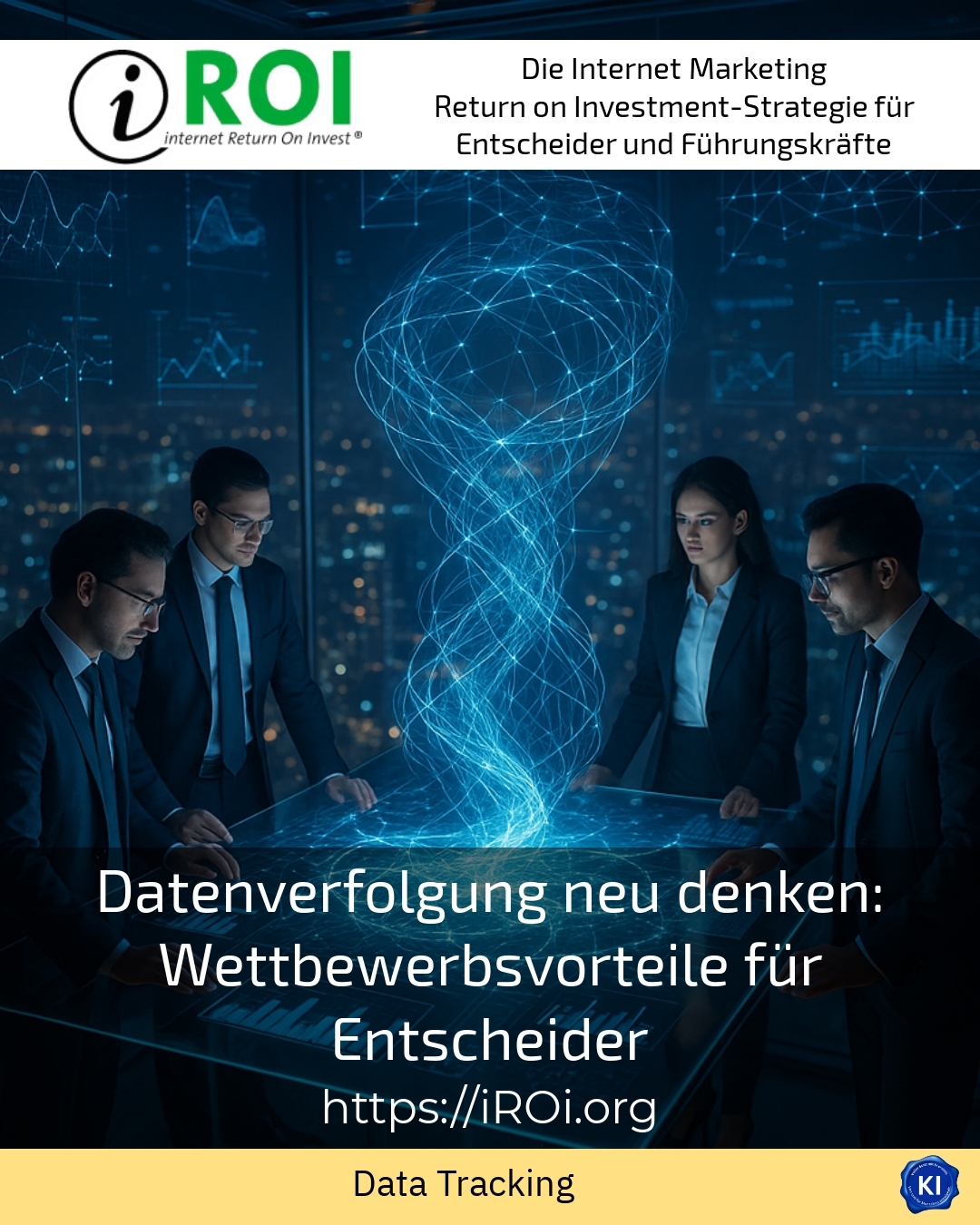Rethinking data tracking: competitive advantages for decision-makers
Data tracking is becoming increasingly important for companies in all sectors. Decision-makers often report that they are faced with the challenge of not only collecting data flows, but also analysing them in a targeted manner in order to achieve competitive advantages. This involves rethinking existing data tracking methods and using innovative approaches to make processes more efficient. This support for data projects helps companies to gain data-based impetus for sustainable strategies.
Modern approaches to data tracking
Many managers complain that traditional data tracking is often too rigid and no longer meets the requirements of dynamic markets. This is where the reorientation of data tracking comes in: Instead of using data only to track past events, the aim is to continuously analyse it in real time. Through the interaction of automated systems and intelligent technologies such as machine learning, data streams can be captured efficiently and relevant data can be utilised quickly. As a result, processes within the company can be optimised immediately.
In industry, it is often reported that rethought data tracking makes bottlenecks in material procurement or production planning visible at an early stage. Service providers in logistics benefit from real-time data in order to flexibly adapt supply chains and reduce costs. In retail, too, improved data tracking enables customer preferences to be recognised more precisely, which makes it possible to address customers individually and thus strengthen the competitive position.
BEST PRACTICE at company XYZ (name changed due to NDA contract)
Company XYZ has used a new data tracking solution to make its supply chain more flexible, reducing production downtime by more than 15 %. The intelligent algorithms now predict material bottlenecks in advance, which enables early countermeasures to be taken. At the same time, the decision-makers have a better overview of their stocks, which has led to significant cost savings in purchasing.
Competitive advantages through data-supported decisions
Data tracking creates competitive advantages above all when decision-makers make data-based decisions. Companies that continuously analyse relevant data are able to recognise trends more quickly and adapt methods. This leads to greater flexibility and increased productivity. Many clients report that support in interpreting the data is crucial. Only with experienced coaching can data be meaningfully categorised and measures derived in a targeted manner.
Industrial companies use data tracking to optimise production processes and precisely plan the maintenance requirements of machines. In the financial sector, analysing transaction data enables risks to be identified at an early stage and portfolios to be adjusted more flexibly. In the healthcare sector, data-based analyses help to better track patient progress and improve individual treatment plans.
BEST PRACTICE at ABC (name changed due to NDA contract)
At ABC, the new type of data tracking led to a reduction in machine downtimes of 20 %. Data-driven maintenance planning made it possible to predict breakdowns and increase planning reliability. Decision-makers now benefit from transparent process data, which forms the basis for agile production control.
Challenges in the reorganisation of data tracking
Despite all the advantages, the reorganisation of data tracking often raises the question of how data flows can be designed securely and in compliance with data protection regulations. A high level of support is therefore valued in data tracking projects in order to fulfil legal requirements such as the GDPR. This is not about absolute guarantees, but about knowing how requirements can be implemented and risks minimised.
Decision-makers also report that the integration of old and new IT systems is often complex. Targeted coaching impulses make it possible to find technical and organisational solutions that improve data exchange and at the same time enable performance increases. Such projects require a balance between innovation and operational security.
The automotive industry, for example, uses the reorganisation of data tracking to seamlessly document quality in the production of components and process complaints more quickly. In the energy sector, improved data tracking ensures optimised load management, which leads to significant cost savings. And in e-commerce, companies benefit from communicating delivery times transparently thanks to improved tracking, thereby increasing customer satisfaction.
BEST PRACTICE at company DEF (name changed due to NDA contract)
DEF relied on innovation in data tracking for a transition project in order to better fulfil legal requirements in product liability. Support in setting up a digital data history helped to make compliance regulations transparent and significantly increase the ability to provide information to partners and authorities.
Impetus for a sustainable data strategy
Today, data tracking is a key component of digital transformation. Decision-makers should therefore not only rely on established methods, but also integrate new technologies such as AI-supported analysis tools into their data strategy. Many managers see coaching as valuable support in setting the right course and successfully implementing projects.
Practical examples show that companies that consistently utilise data-driven potential benefit from sustainable increases in efficiency. They can streamline internal processes, better assess risks and develop innovative business models. This is why data-based support is not only seen as risk protection, but also as a driver of strategic growth.
My analysis
The realignment of data tracking enables decision-makers to create data-driven competitive advantages. It is important to organise the change as a continuous process and to be supported by experienced consultants. This is the only way for companies to achieve a balance between technological innovation, operational implementation and compliance with data protection requirements. In practice, many clients reported positive impulses and measurable improvements in their data projects when data tracking was actively rethought.
Further links from the text above:
[1] Data strategy competitive factor: How companies use data
[2] Competitive advantages through the effective use of data
[4] Digital transformation: Why efficient data management is becoming a competitive advantage
[5] 7 tips for SaaS companies to gain a competitive edge
For more information and if you have any questions, please contact Contact us or read more blog posts on the topic TRANSRUPTION here.















